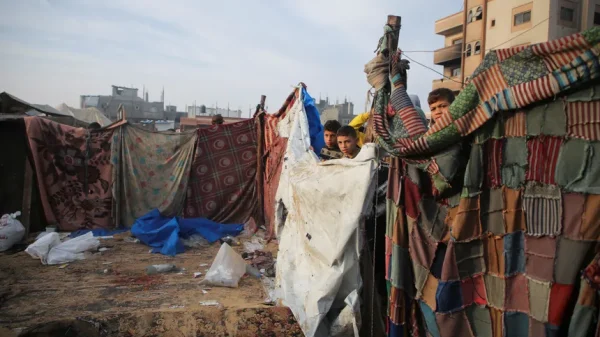As Hurricane Helene ravages the southern United States, Democratic presidential nominee Kamala Harris and President Joe Biden are engaging in a high-stakes political battle, with both candidates visiting the disaster-stricken areas to demonstrate their leadership and empathy. Harris arrived in North Carolina, a crucial battleground state, just a day after Republican presidential candidate Donald Trump’s visit, where she helped distribute meals, toured the damage, and consoled families affected by the storm. Harris’s visit marked a new chapter in her bid for the White House, as she attempted to step into a role typically reserved for Biden, who has a reputation for showing empathy in times of tragedy.
This week, Biden joined Harris in her efforts, visiting Georgia and the Carolinas to survey the damage and meet with farmers whose crops have been destroyed. In a letter to congressional leaders, Biden highlighted the need for swift action to restore funding to the Small Business Administration’s disaster loan program and warned that the Federal Emergency Management Agency’s Disaster Relief Fund faces a shortfall at the end of the year. Over 200 people have lost their lives due to the storm, making it the deadliest to hit the US mainland since Hurricane Katrina in 2005.

Joe Biden (Calvin Gates/SHutterstock)
The stark reality of climate change has cast a shadow over the unfolding political battle, with Trump espousing falsehoods about the issue. In the midst of the crisis, both parties are scrambling to win over voters in battleground states, with the political stakes of the election reaching unprecedented heights. Harris’s visit to North Carolina marked a turning point in her campaign, as she sought to demonstrate her leadership and empathy in the face of disaster.
In a nation struggling to come to terms with the devastating consequences of climate change, Harris’s words resonated deeply: “The vast majority of us have so much more in common than what separates us… We are here for the long haul.” As the presidential election draws to a close, Harris’s visit to North Carolina serves as a potent reminder of the importance of leadership, empathy, and compassion in times of crisis.


























